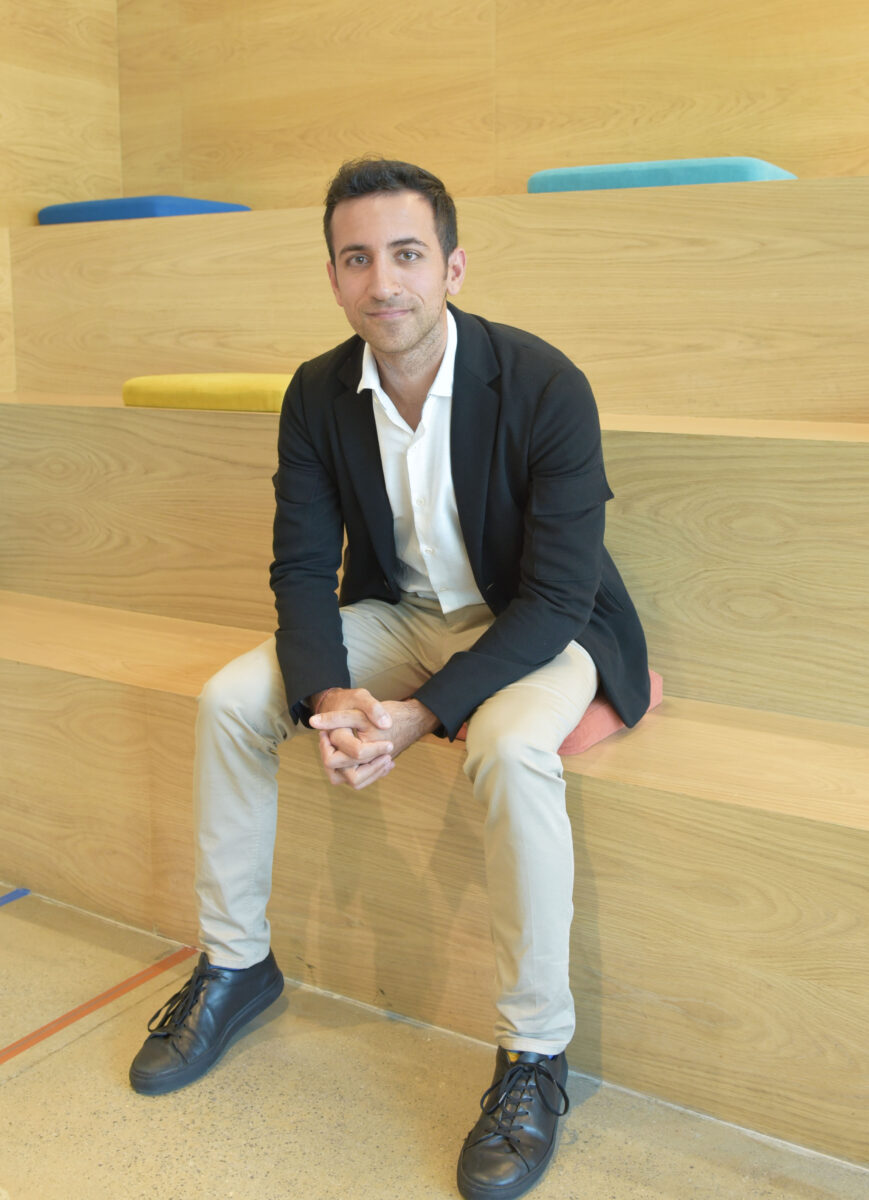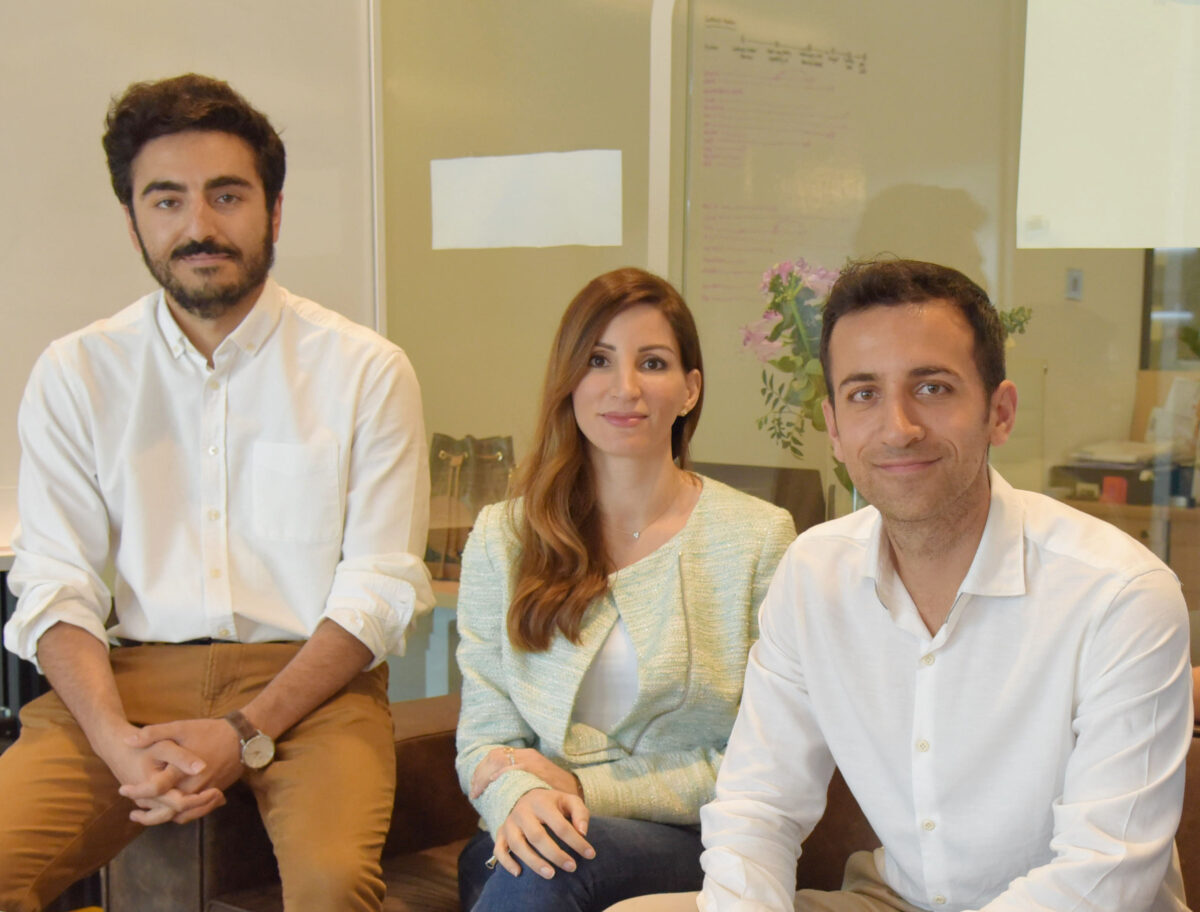Wealthtech has grown in many parts of the world in recent years. With its aim of providing digital solutions to enhance both personal and professional wealth management and investing, It has changed much of the financial sector and helped accelerate Its own digital transformation.
In Dubai, it has grown to not only be a regional hub of various multinationals and entities but one that also fosters its own talent and innovation. Dubai International Financial Centre, or commonly known as DIFC, Is the main financial services cluster and ecosystem. It Is home to DIFC FinTech Hive, the first and largest financial technology accelerator in the Middle East. One of the innovative companies with its main office based in the Fintech Hive is a wealthtech company called Sarwa. We sit down with Mark Chawan, Co-Founder and CEO of Sarwa.

Mark can you give us a bit of background about yourself and your role at Sarwa?
The story started when I was living in Canada and working as a financial consultant. I was very familiar with how Robo-advisors were drastically revolutionizing the wealth industry in the North America by reducing fees and account minimums. Every time I spoke to family and friends living in the Middle East, It became clear to me that the region was lacking access to democratized financial services. I wanted to provide a solution that allows everyone to invest their hard-earned money, in an easy and affordable way. So I decided to bring that solution to the region, with the help of my friends and now partners, Jad Sayegh and Nadine Mezher.
A bit of background about myself: I have a Bachelor of Commerce in Finance from McGill University in Canada. I co-founded Sarwa after years of consulting for Canada’s largest financial institutions, as part of Accenture Strategy’s Financial Services practice. Prior to Accenture, I worked in asset management at Caisse de depot et placement du Quebec (CDPQ), one of Canada’s largest pension funds with $270B+ in AUM. This led me to the conclusion that investing should be passive, accessible and affordable for everyone. I worked on making it happen.
Dubai’s story from a small fishing and trading post to a global hub across various sectors (including fintech) is both remarkable and admirable. Being based in Dubai, can you give some insights to our international audience who might not be familiar in detail with Dubai and its role in fintech specifically?
Dubai is an amazing vibrant city that is always moving and changing. The energy you feel in this place is unlike other. The emphasis in the city has been on multiculturalism and innovation. When you put these two characteristics together, you end up with a great pool of people that bring their own best experiences from around the world and share them together, creating amazing opportunities.
In Fintech specifically, Dubai was a pioneer in the region. The government played a more significant role here than what you see in established markets, to build the infrastructure for a booming industry. Currently you see a top-down approach to support the ecosystem You need to have the right elements in place: financial institutions/service industry working closely with the public sector, and providing the existing talents with the necessary tools from mentorship, network, as well as capital to name a few. This is done through incubators, accelerators, and strategic initiatives. Sarwa was part of the region’s first Fintech accelerator, The Fintech Hive at DIFC, and this is where it was born.

Dubai International Financial Centre (DIFC), the main financial hub of Dubai as well as where you are based at, has recently announced that Sarwa (as well as three other companies) would receive a significant investment. How will that help you both manage the current global situation that is Co-VID 19 and also continue to grow in the future?
We are very excited to add DIFC the list of strategic partners in Sarwa that understand what it takes to build a wealth management business, and that believe in what we are trying to achieve: making investing as simple as can be, and allowing anyone to grow their wealth and build for a better future. The new injection of funds will allow Sarwa to continue its regional expansion, grow the team to include the brightest minds from developers to advisors, and provide employees saving and workplace schemes.
We are lucky to have closed a round of funding that allows us to have a long runway. Fortunately for us, the pandemic did not impact our operations. For Sarwa, it was business as usual, if not better – since we were built for remote working and remote customer support.
What Makes Your Product Unique in the Fintech Ecosystem both in the GCC and Potentially in the Global Market?
Our vision is to enable people in the region to build a better future with expert, affordable and easy investing. Today there is more wealth in more hands, personal wealth in the middle-east has doubled in the last decade, and passive investing via ETFs has dominated the active investing space. These tools allow young professionals to get expert advice and reach their financial goals: saving for a home, securing their children’s education, or simply planning for their retirement…We help them do that by combing smart technology with human advice. Sarwa is a hybrid model by excellence. We use technology to drive down cost of advisory, we use ETFs as a democratized investing tool, and we provide access to advisors when needed.
We created an extremely user-friendly and fully digitalised experience at a very low fee and very low entry point. Sarwa prides itself on its ability to give financial advice as a fiduciary, as well as on its great customer service. We also have education at the core of what we do: by creating articles, videos, launching workshops and webinars we want to provide our community with the right knowledge to make informed decisions. To summarize, Sarwa offers the following:
- Low minimum account starting point at $500
- It is free for accounts below $2500 so you can try us out.
- Transparent pricing: we have a pricing page where we detail what the advisory fee is and what you pay for: 0.85% and goes down to 0.5%
- Simple and easy on-boarding: fully online on-boarding. All can be done from the comfort of your couch in a few minutes.
- No entry, or account closing fee. No trading fees. No Lock-in
- Smart Re-balancing: When your asset allocations move away from your desired portfolio allocation, Sarwa will automatically rebalance your portfolio.
- Automatic dividend reinvesting and tax optimization
- Customer service: you can access financial advisors and our customer support team when needed
- Great free Educational content and financial planning tools that you can find on our website blog
Globally – where do you see the fintech sector heading in the future? Also, specifically with the financial investments model that Sarwa is looking to disrupt?
With financial industries struggling to digitalise, Fintech is leading the space. We will see an acceleration in certain trends such as more and more regulators embracing Fintech, and a new generation of Fintech adapters that want convenience, transparency and personalisation just as much as performance.
The current narrative of the pandemic brought with it major characteristics that validated the offering of companies like Sarwa. With high market volatility, many expected fintech clients to react with panic, since they don’t have the typical advisor/manager. The premise was that retail investors would not know what to do without constant coaching. This has not been the case. What we saw was quite the opposite. Our model focuses on education, and Passive investing does not involve impulsive decisions based on market movement. Not only did we have a lot of re-deposits from existing clients but also a tremendous number of new clients that want to take advantage of the drop-in stock prices, entering the market for the first time. Being confined made people realize they need to get their finances in order and finally check off investing off of their list.
At the same time, because we are a financial technology service with full online support for our clients, we are built for remote work. Our clients are fully on-boarded online and that pure practicality is a big part of our growth. With technology, and education, we can eliminate the investing and wealth gap. That’s a vision we believe is worth working towards.




